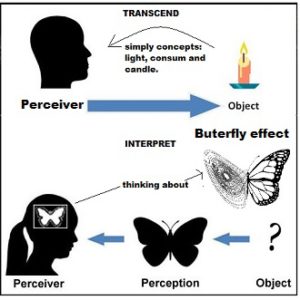
Simplification, idealism and pandemic
The idea that we can simplify phenomena that are complex seems a good way, but to simplify what is by nature complex is to ignore the set of phenomena and interpretations that are within the phenomenon you want to analyze, whatever the nature.
but to simplify what is by nature complex is to ignore the set of phenomena and interpretations that are within the phenomenon you want to analyze, whatever the nature.
It is very different from the search for essence, the pre-Socratics sought to define what was the essential element of nature: fire, air, atoms, numbers, the Being, and thus defined the main pre-Socratic schools, when realizing that it was a broader phenomenon Socrates, which is read by Plato divides into two worlds: the world of Ideas and the sensitive world, however any attentive reader will not say that his school has simplified, it only paved the way for greater complexity.
The eidos of Plato and the pre-Socratic Parmenides is different from modern idealism, because in it there is so much the concept of form, for example, a chair whatever form it has its Being as being made to sit.
The Greek eidos from which the etymology of the word idea comes, has two accepted meanings, one that is a synonym for concept, but in a broader sense it is thought of as an expression, with the implicit principle of the idea of intentionality (*), and this concept it was only taken up in modern philosophy by Franz Brentano and later in Husserl’s phenomenology, who was his student.
Modern idealism, whose fundamental basis is Kant, although it has a common part to the Greek eidos, which is the idea that when studying the thing we have a projection of knowledge on it, reducing the idea that this study would be what characterizes the object of study (objectivity), and thus introduces a specific type of subjectivity, abstracting it from Being, this abstraction has in Hegel the apex.
Kant came to think that it would be possible to reduce all thought to a few concepts, it would be a great facilitator for study and thought, but his thinking resulted in an even greater complexity, and his simplicity fell into the subject x object dualism, which we suffer.
Every simplification leads to some kind of subjectivism or objectivism, even in religious terms, when studying The Human Phenomenon, Teilhard Chardin declared that Man is the complexification of nature, difficult for theologians and exegetes to accept, but I ask you the question: why did Jesus use of parables to explain things that apparently could be simple¬, because it isn’t.
Idealism is basically a “doctrine” that contains the belief that it is thought and not the physical world that is at the origin of all things, that is, the objective world, which we discover with the pandemic, and physics quantum already knew and actual cosmology is deepening, is that uncertainty is part of knowledge, and we are faced every day with a new phenomenon.
After all, one of the assumptions of Kantian idealism was the submission of nature, she rebelled.
This is the original novelty that idealists do not accept, and this novelty should give us back the humility, proclaimed by all, but as idealism gets stuck in duality, the error is the others, we knew the truth, not even science, nor faith could imagine the complexity of the phenomenon that all humanity lives, the first step to face the pandemic is this: I depend on the step of the Other, and that we can take steps together, it still seems difficult.
*Encyclopædia Britannica, Available in: https://www.britannica.com/topic/idea , Access in: 04/26/2020.









